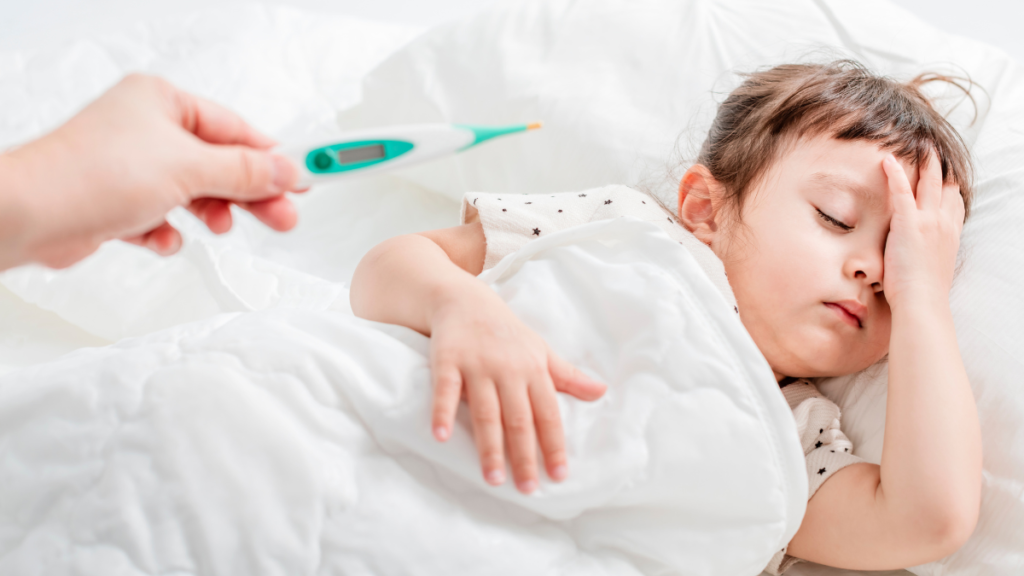
Got a feverish child at home? What can you do to treat them and make sure you get them on the mend as soon as possible? We’ve got some top tips.
Knowing how to treat a feverish and hot child can sometimes feel really confusing, especially as there is so much conflicting advice out there.
A fever is defined as any time your child’s temperature is 38 degrees centigrade or higher and is your baby’s or child’s natural response to fighting an infection. Besides feeling hot, your child may be more tired than usual, irritable and off their food and drink.
The good news is there are lots of simple things that you can do to help your little one when they have a high temperature.
Drinking is really important so encourage them to drink plenty of fluids. Make sure you offer regular breastfeeds if you’re breastfeeding. Only offer them food if they seem to want it.
It’s quite likely that they may sleep more than usual, so make sure you check on them regularly, even during the night.
If they are ill it is also best to keep them at home. Keep them away from childcare, nursery or school – let the carer, nursery or school know your child is unwell.
If your child’s fever is as a result of a virus, then medication may not take the virus away, but it will help with symptoms and relieve pain. However, if your child is relatively well and is safe to look after at home but they are distressed by the fever then these medications can help them to feel more comfortable.
And many parents agree they’ve had huge success in bringing a temperature down by using medicine specially formulated for children.
Contrary to popular belief, there is no point in either stripping your child or baby off or giving them extra clothes to wear, as this will have no effect on treating their fever according to experts.
You should dress them appropriately for the temperature as you would do normally. Do not strip them down or overdress them as neither helps.
And perhaps, more obviously, the other big no-no is you should absolutely never give children medication that is meant for an adult. Instead, ask your pharmacist for medication specifically designed for children.
You may have heard of febrile seizures / convulsions.
These are fits that occasionally occur when there is a sudden increase in a child’s body temperature.
They usually happen between the ages of 6 months and 3 years, and while they can be very frightening, they are thankfully usually harmless.
Fever-reducing medication won’t actually stop these: Tylenol or Advil do not prevent febrile seizures. Always see a doctor if you are concerned.
If your child:
then they should be seen by a doctor.
Ultimately you know your child and if things don’t feel right it is always best to take your child to be checked over by a doctor. If your level of concern is less urgent, you could always call your local health helpline for some advice.
© 2023 All rights reserved Baby & Toddler - part of parent promotions